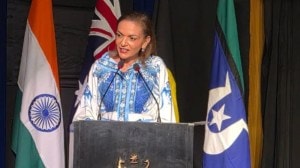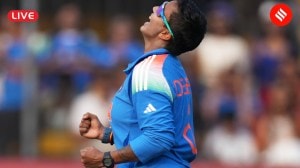Multi-centre research at Pune’s B J Medical College (BJMC) and Sassoon General Hospital and Chennai’s Indian Council of Medical Research-National Institute of Research in TB (NIRT) and other sites in Africa has prompted the World Health Organisation (WHO) to recommend shortening the treatment duration in non-severe paediatric TB cases from six to four months.
More than one million children worldwide become ill with TB annually and almost 20 per cent of them die. Children historically have been excluded from clinical efficacy trials of TB treatment. The treatment recommendations have generally been extrapolated from trials involving adults. Hence using the fixed-dose combination formulation of TB drugs researchers from India and Africa evaluated the cost-effectiveness of a four-month treatment regimen.

The shorter treatment for minimal tuberculosis in children (SHINE) multi-centre trial was conducted in India and Africa. It was a phase-3 randomised open-label trial comparing the four-month and six-month treatments. Around 1,204 children under 16 years participated in the trial and the key finding was that the four-month treatment was non-inferior to the standard six-month treatment. Findings of the trial have been published in the March 10 edition of the New England Journal of Medicine.
Story continues below this ad
Data from the randomised controlled trial on treatment shortening for children with non-severe TB were made available to the WHO in 2021, leading the public health agency to convene a Guideline Development Group (GDG) to review new evidence on the management of TB in children and adolescents. This led to eight new recommendations on the management of TB in children and adolescents.
Dr Aarti Kinikar, principal investigator of the B J Medical College’s clinical trial unit that participated in the SHINE study told The Indian Express “The children were randomised to receive either six- or four-month treatment. They were followed up for 18 months. We did not find any statistically significant difference when comparing both groups in terms of unfavourable outcomes (treatment failure, TB recurrence, death of any cause and loss to follow up). Side effects related to treatment were also few.”
Shortening treatment for drug-susceptible tuberculosis is a key goal for both adults and children. This trial showed the feasibility of identifying children with the non-severe disease. “The results suggest that a stratified medicine approach as an alternative to the one-size-fits-all strategy of treatment for presumptive drug-susceptible tuberculosis could be implemented in children with nonsevere tuberculosis,” researchers have said in their paper in the journal.
The 2014 WHO guidelines for national tuberculosis programmes on the management of tuberculosis in children (second edition) included 28 recommendations on the management of TB in children. The 2022 consolidated guidelines incorporate recommendations from the 2014 guidelines that remain valid (mainly topics that remain key components of high-quality TB care for which no new evidence was assessed), relevant recommendations that have since been published in other WHO guidelines, and new recommendations published in 2022.
Story continues below this ad
This is the second time that WHO has made its recommendations based on multi-centre research. The first time was on the SWEN (six weeks extended dose- Nevirapine) to prevent HIV transmission from mother to child. Findings were then published in The Lancet which said extending the dose to six weeks significantly lowered HIV transmission rates. BJMC Pune was among the trial sites then also.









